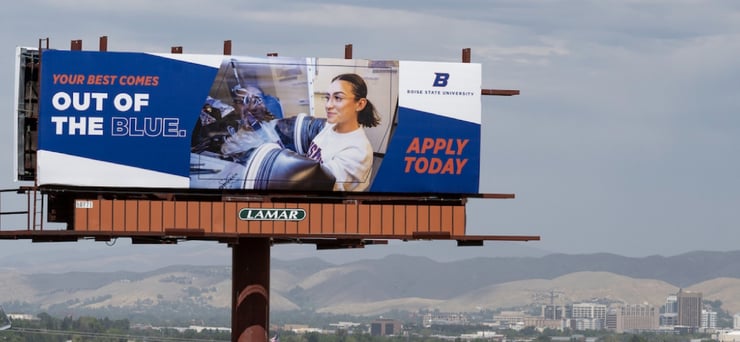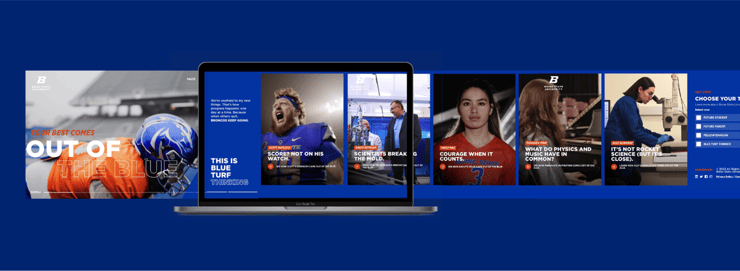As the price of a four-year degree continues to rise, prospective students and their families are increasingly questioning the value: Is it really worth it?
Colleges and universities need to demonstrate that what they offer is worth the cost. Typical return on investment (ROI) metrics include graduation rates, average starting salaries, and job placement rates. Even though these metrics are important, they may not be painting the full picture. On a recent swampED podcast, Brandon Busteed, Executive Director of Education and Workforce Development at Gallup, talked about two central experiences of college education that Gallup’s research has revealed to have the greatest impact on graduates’ ROI: relationship-rich experiences and work-integrated experiences.
- Relationship-Rich Experiences: Busteed notes that relationship-rich college experiences are a vital part of a student’s career satisfaction post-graduation. Relationship-rich experiences include building strong communication with professors and having one or more mentors who help you reach your goals and dreams. Students who have these kinds of relationships are significantly more likely to have higher levels of engagement in their future careers. High levels of career engagement are a significant factor in overall quality of life post-graduation.
- Work-Integrated Experiences: Work-integrated experiences include internships, co-ops, and semester or longer class projects. An important distinction to note about internships and co-ops is that the value only exists if the work you do is applicable to what you are learning in the classroom. Busteed’s research shows that having an internship or on-campus job that had nothing to do with a student’s coursework had little impact on career success and satisfaction. However, work-integrated experiences that do correlate to a student’s coursework not only make students more employable but also make them more engaged future employees. Busteed’s research concludes that 85% of employers would rather hire a B student with a relevant internship experience over an A student without one.
It’s time to think about ROI more holistically.
When looking at ROI, it’s easy to think about outcomes like average salary and job placement rates. However, as we can see, we need to think about ROI more holistically. Higher ed institutions should look to increase their efforts in shepherding students toward relationship-rich and work-integrated experiences that lead to higher levels of long-term career engagement and quality of life. We took a look at how some institutions are already promoting these types of experiences as great indicators of ROI for their students.
- Butler University highlights relationship-rich experiences by simply letting alumni tell their own stories. Through video, quotes, and narratives, grads provide authentic accounts of their most important relationships with professors and discuss the value of these mentors to their life and career successes.
- Gettysburg College promotes the value of work-integrated experiences by showcasing metrics such as the percentage of students who complete an internship before graduation and the percentage of employers who believe their Gettysburg interns will lead successful careers. By placing these metrics alongside traditional outcomes, an association is made between completing these experiences while in school and obtaining excellent outcomes post-graduation.
- Wartburg College also makes the connection between experience and success by sharing results of its alumni satisfaction surveys on the outcomes pages of its website. Metrics include percentages of alumni who felt a strong sense of community on campus, who had a good mentoring relationship with a member of the Wartburg community, who were challenged to make interdisciplinary connections, and more.
Promoting traditional ROI metrics as well as the experience-based outcomes will help institutions stand out and make the answer to the question, “Is it really worth it?” a resounding “Yes.”











